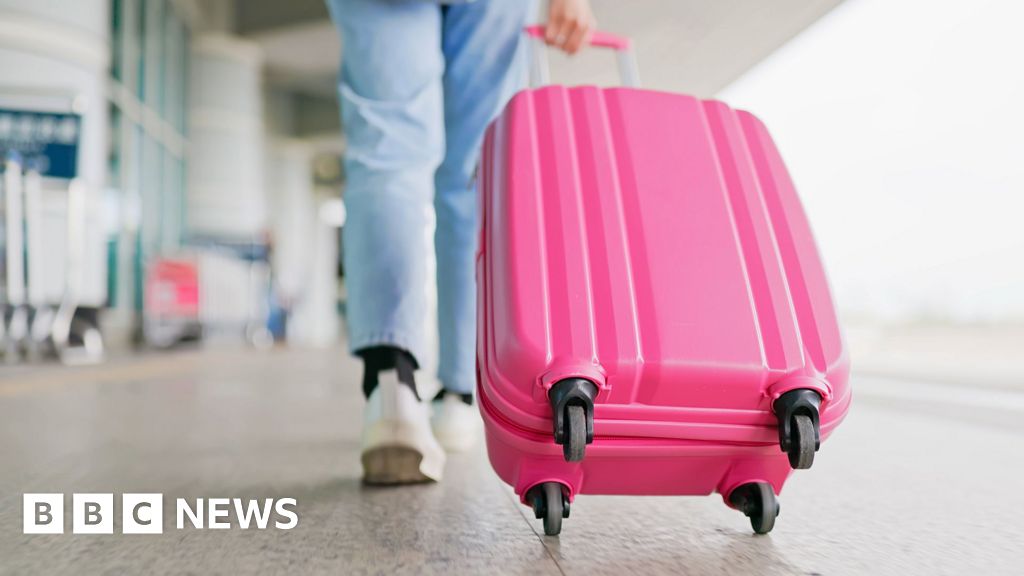Unlock the Editor’s Digest for free
Roula Khalaf, Editor of the FT, selects her favourite stories in this weekly newsletter.
Egyptian television has broadcast images of people leaving Gaza after a deal to allow the critically wounded out of the enclave for the first time since the start of the Israel Hamas war three weeks ago.
The television images of injured evacuees leaving the Palestinian side of the Rafah border crossing in ambulances, were shown on Wednesday morning following negotiations involving Egypt, Israel and Hamas. It was not immediately clear how quickly they could pass through into Egypt.
Diplomats were also hopeful that some of the 6,000 foreign nationals trapped inside the besieged coastal strip would be able to leave through the Rafah crossing between Egypt and Gaza.
UK foreign secretary James Cleverly said on social media that the Rafah crossing was “likely to open today for a first group of foreign nationals”.
The deal was brokered by Qatar, a western ally that hosts Hamas’s political office, according to a person briefed on the talks.
Ashraf al-Qudra, the Gaza health ministry spokesperson, told Egyptian state-owned broadcaster al-Qahera News that an agreement had been reached for 81 wounded people to leave Gaza for treatment outside but that “hundreds of thousands . . . need to go out.”
He added that the ministry was trying to send to Egypt patients who “are dangerous or complex cases for whom there is no treatment in Gaza and who can be transported”.
Wael Abo Omer, a spokesperson on the Gaza side of the Rafah crossing, said it would be open on Wednesday “for a number of the wounded to leave to continue their treatment in Egyptian hospitals”.
Three people familiar with the situation said diplomats were discussing a plan to allow 500 foreign nationals to leave Gaza on Wednesday, and 1,000 a day thereafter, but cautioned that the situation could change.
A spokesperson for Australia’s Department of Foreign Affairs and Trade said it was “communicating with all individuals registered with us in Gaza about departure options, including to make them aware of the possibility of the opening of the Rafah border on 1 November”.
Consular officials in Cairo were ready to provide support to those Australians and their family members who crossed into Egypt, the spokesperson said.
Foreign governments have been working with Egypt to ensure safe passage from Gaza for foreign nationals and Palestinians with dual citizenship through Rafah ever since Israel launched its bombardment of the Hamas-controlled strip more than three weeks ago in the wake of Hamas’s attack on Israel, which killed approximately 1,400 people, according to Israeli officials.
Israel’s bombardment has killed more than 8,500 people in Gaza and injured more than 21,500, according to Palestinian officials. Israel has also severely restricted supplies of electricity, water, fuel and food to Gaza, prompting UN officials to warn of a human catastrophe in the enclave.
On Wednesday morning, phone and internet services in Gaza were also cut off, with the telecoms company Paltel reporting a “complete disruption” of services in the enclave for the second time since the start of the war.
On Tuesday, Bolivia severed diplomatic relations with Israel and Chile and Colombia recalled their ambassadors, after an Israeli strike on the Jabalia refugee camp killed dozens of people. Israel said that the strike had targeted a Hamas commander.
US secretary of state Antony Blinken said on Tuesday that finding a way to help the 500-600 US citizens trapped in Gaza to leave was a top priority that continued to be stifled by Hamas.
“This is something we’re working on every single day,” Blinken said while testifying at a US Senate hearing in support of President Joe Biden’s $105bn supplementary budget request for Israel and Ukraine. “To date the impediment has been Hamas.”
Itayi Viriri, a spokesperson for the International Organization for Migration, told the Financial Times that several member states had reached out to the UN agency “requesting support in the evacuation of hundreds of foreign nationals from Gaza”.
Additional reporting by Nic Fildes in Sydney
Credit: Source link










